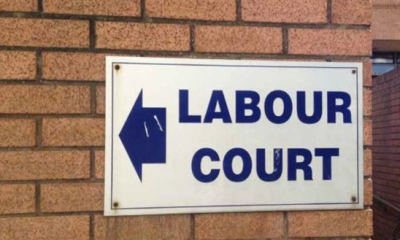411
DA Heads to Court Over Controversial Employment Equity Laws

A major legal showdown is unfolding as the Democratic Alliance (DA) takes the Minister of Employment and Labour to court over South Africa’s newly published Employment Equity Regulations, 2025.
Gazetted on 15 April 2025, the updated regulations replace previous employment equity laws and introduce race- and gender-based numerical targets for businesses across 18 industries. The aim? To force quicker transformation in workplace demographics to match the country’s economically active population (EAP), either nationally or provincially.
These targets apply to designated employers—companies employing more than 50 people. If they don’t comply, they could be hauled before the Labour Court and face fines of up to 10% of turnover.
DA: “This Is Unconstitutional Discrimination”
The DA is pushing back, hard. The party has launched a constitutional challenge, arguing that Section 15a of the Employment Equity Amendment Act violates the right to equality and non-discrimination guaranteed in Section 9 of the Constitution.
“A law that forces employers to fire or refuse to hire people based on race—whether black, coloured, Indian, or white—is not redress. It is unconstitutional discrimination,” the DA said in a statement.
The DA is particularly concerned about the broad and unchecked powers granted to the Minister of Employment and Labour to set binding quotas across entire sectors, with limited transparency or oversight.
“The so-called ‘targets’ are not guidelines—they are binding quotas, enforceable under threat of severe penalties,” the party added. “This violates the Dawood principle, which requires clear and intelligible legal standards to guide public officials.”
New Rules, Tough Enforcement
The Department of Employment and Labour has wasted no time. Over 50 labour inspectors have already been trained to enforce the new laws. Businesses must implement and report on an Employment Equity Plan covering the period from 1 September 2025 to 31 August 2030.
The department maintains that the regulations are essential to achieving equitable representation of designated groups—black people (African, coloured, Indian), women, and people with disabilities—at all levels of employment.
Deputy Director Masilo Lefika said the department is focused on improving compliance and building enforcement capacity through national workshops and training.
Transformation vs. Constitution
While the government believes these rules are key to long-overdue transformation in the workplace, critics like the DA argue that transformation should not come at the cost of constitutional rights, jobs, or economic stability.
“We support redress. But it must be real, inclusive, and rooted in economic growth—not enforced quotas,” the DA stated.
As the case makes its way to court, it could have far-reaching implications for how South Africa balances economic redress, constitutional protections, and workplace diversity.
{Source: BusinessTech}
Follow Joburg ETC on Facebook, Twitter , TikTok and Instagram
For more News in Johannesburg, visit joburgetc.com























